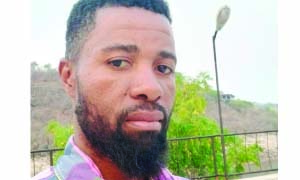The Constituency Development Fund (CDF) is meant for the establishment of capital investments which include road construction, upgrading of existing infrastructure with the aim of improving communal access to social services.
This is by using the bottom-up approach to social planning and administration.
The United Party for National Development (UPND) Government realised that the impact of the budgetary allocations to line ministries was not being felt at grass-root level.
The administration came up with a devolved arrangement in which the Members of Parliament (MPs), councillors and members of the public in constituencies would have a say in the selection of beneficiary projects.
It was the beginning of practical devolution as communities started participating in decision-making on how the money was going to be spent.
Previously the fund has gradually been increasing at rather slow pace but when UPND got into power there was a significant jump from K1.6 million per constituency per year to K25.7 million and now K28.3 million.
It is the belief of Government that this money should stimulate economic activities at various levels.
Government issued guidelines on its management, disbursement, utilisation and accountability of the money.
The guidelines range from policy and legal framework, to objectives of the CDF guidelines to the scope of the CDF as well as its components.
The CDF caters for community projects, youth, women and community empowerment, secondary boarding school and skills development bursaries.
Admittedly, there is a lot of excitement around the CDF in many communities and justifiably so after the introduction of bursary scheme.
Zito Siamuchimba, 34, of Kanyelele Compound in Siavonga district is one of the beneficiaries of the bursary scheme under the CDF.
Sponsored under the CDF, he did his course in Tractor Loader Backing (TLB) for three weeks (3) at Nirvana Skills Training Centre in Mufulira on the Copperbelt.
Mr Siamuchimba commends government for having introduced the bursary scheme to the vulnerable youths to enable them to acquire life-skills.
“I would like to thank the New Dawn government for giving me a bursary of which I acquired a skill as a tractor loader backing (TLD), if it was using my own resources I couldn’t have managed. Government should continue giving the bursaries so that many youths can benefit from the bursary scheme under CDF,” he says.
He says the bursary scheme will equip the youths with appropriate skills, transform and uplift their livelihood.
Mr Siamuchimba says that the course he underwent will help in uplifting his livelihood and his family once he starts his own business or finds employment.
He encourages the youths to apply for CDF bursary scheme as it is an ongoing process.
“I encourage my fellow youths to also apply for the CDF bursary scheme so that they can be helped by government like I have been helped,” says Mr Siamuchimba.
He observes the difference on how CDF was being managed by the previous government and the new dawn government adding that if the current government has been in the power for many years, livelihoods of many youths could have improved.
Mr Siamuchimba thanks the Siavonga district CDF committee and the entire leadership in the district for their hard work.
He observes that looking at the selection by the CDF committee there was no discrimination in the whole process.
Mr Siamuchimba, however, bemoans lack of skills training centres in Siavonga district.
“We don’t have any skills training centre in Siavonga. We really need a skills training centre here. Government is spending a lot of money to send the youths to go for skills training to far places like where I was in Mufulira. The money for CDF shouldn’t be going out of Siavonga, It should remain here to help develop the area,” he says.
Mr Siamuchimba says he is always available to provide free guidance to youths who want to pursue the TLD course.
“This is for those youths who want to do TLD course, I would like them to know what is involved in this course so that even when they are sent to Mufulira at least they have an idea of what they are going to learn about,” says Mr Siamuchimba.







